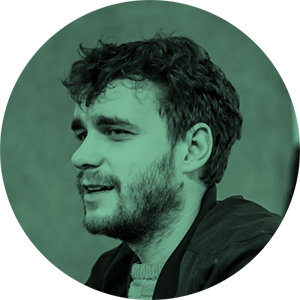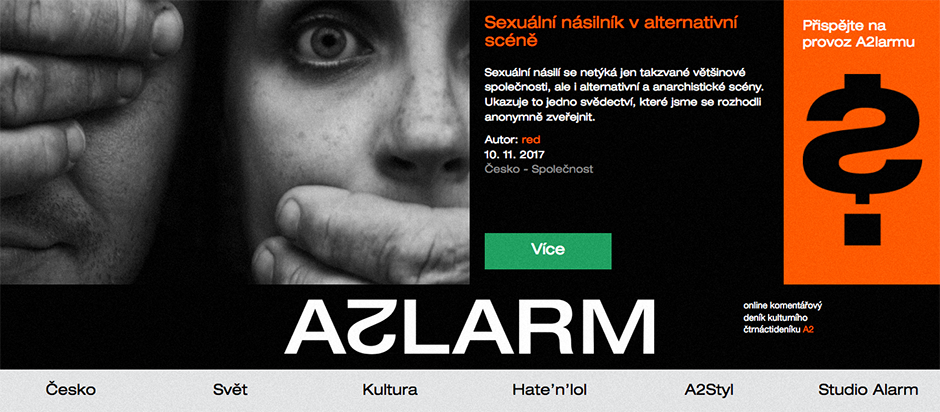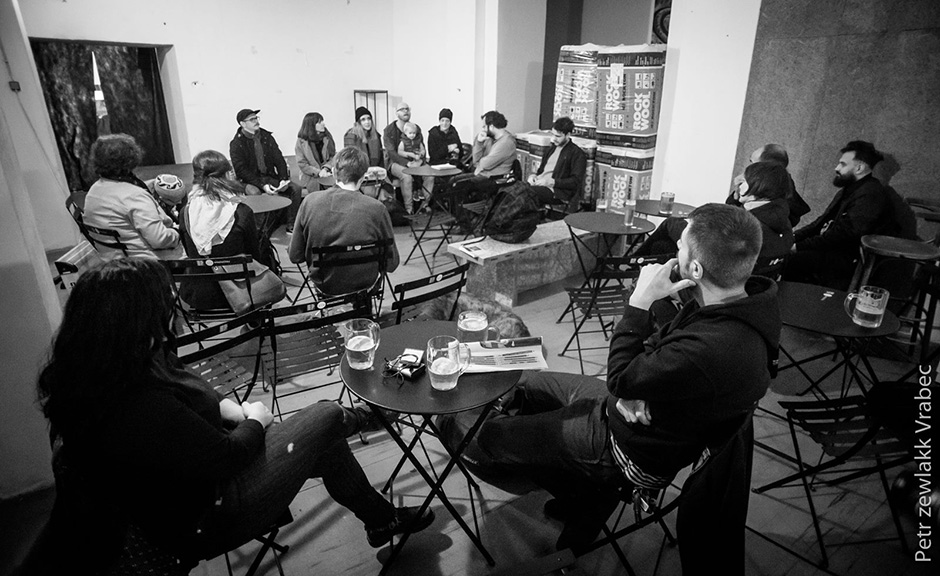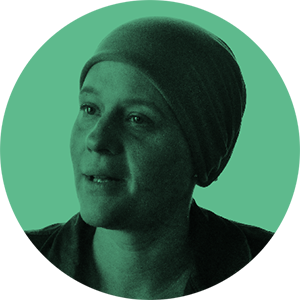A2larm.cz: the story of Czech mediastalkers
- 15.11.2017
- 31355
What is the main point of activist media organizations and what do they change? With these questions we addressed to the experience of the Czech Republic. Václav Drozd, activist and the editor of Czech independent online-magazine a2larm.cz, tells us about the workflow of the editorial team, Czech “left scene” and the most eminent journalist investigations.
Who we talk to?

Václav Drozd is an editor and fundraiser for Czech independent online-magazine a2larm.cz. Since 2012 he got socially involved during student protests against the neoliberal reform of the higher education. That time activist groups started to emerge all around Czech university cities establishing a common base of values and demands in a quite apolitical environment. The core group of the movement formed people born around 1989 and raised in the society with strong anticommunistic and antipolitical ethos.
Students movement helped to overcome some ideological and discursive barriers by defending free education and demanding better funding for universities. Since then, Václav is an active participant of Czech left-wing scene through protest organizing or just participating and writing on social and political topics for A2larm.
“Today I’m more focused on reporting on social struggles and actively involved in organization issues. Alongside, I'm trying to find some balance between these two approaches or strategies, both similarly valuable”, Václav says.

What is A2larm?
– A2larm was founded in 2013 as a commentary website of a biweekly A2 print magazine. The initial goal was to provide opinions on Czech and international politics and culture from the left perspective and create an alternative with a clear critical stance to mainstream media.
From the part-time subcultural project, we've developed into a more professional medium with long-term investigative projects, unique reports and news with over 80 000 website visitors per month. We try to publish video interviews, live streams and promote our content to readers via Facebook and Twitter.
How is the workflow for the editorial team established?
– We share the office in Prague with our colleagues from magazine A2, but we spend most of the time working from home or cafés. We hold an editorial meeting twice every week, on Monday online and then we meet in our office on Tuesday.
Our editor-in-chief Jaroslav Fiala is a historian by training and most of our editorial team have degrees in social sciences or humanities. Apolena Rychlíková is a documentary filmmaker and our chief reporter Saša Uhlová is actually the only professional journalist with the job experience in other media organizations.
«Our goal is to intervene between different social realities and worlds»
We realize our intellectual background affects not only the language we use but also the topics we deal with. Therewith, we constantly learn to overcome cultural barriers and try to be more inclusive and widely understandable medium. We`d like to shift A2larm from theoretical reflection and elaboration to fieldwork journalism. Clearly, this approach is more demanding and expensive but it`s definitely worth it.
Most of the Czech media are under control of oligarchs like Andrej Babiš, one of the richest men in Europe who`s going to be a prime minister. He bought the media group Mafra, the publisher of two best selling and most influential newspapers in the country, MF Dnes and Lidové Noviny. Businessman Daniel Křetínský owns the second biggest media house – Czech News Center.
A2larm doesn't have financial or political ties to any big business or political party. The project is funded by donors, readers and also with grants provided by Independent Journalism Foundation. The positive side of that we are not subject to any kind of censorship or self-censorship of authors. It is big problem for big media organizations that are controlled by financiers.

What are the hottest topics in media this year?
 – Our key issue for this year is workplace conditions of unqualified and low-income workers in Czech companies. In September and October, we've published series of investigative pieces by Saša Uhlová, called “The Heroes of Capitalist Labor”.
– Our key issue for this year is workplace conditions of unqualified and low-income workers in Czech companies. In September and October, we've published series of investigative pieces by Saša Uhlová, called “The Heroes of Capitalist Labor”.
Under an assumed identity she worked on a part-time basis in various positions. For months, she monitored what wages employees really receive, whether the Labor Code is being upheld, and explored the overall situation, listening life stories of people who work in the lowest-paying jobs in the Czech Republic. As a result, the investigative stories spread not just around the Czech mainstream media but also found the way in several European mass media editions (including German ZDF).
«Employees do not dare to speak up, fearing to lose the illusive well-being they have»
Besides the topic of labor, we continuously cover the housing situation in the Czech Republic. For instance, recently we published my piece about the mayor of Czech city Kladno who has lowered housing benefits for all residents in an effort to drive the poor out of the city.
We also publish daily commentaries and analyses about Czech and international politics, news and reviews. The magazine content is defined with the set of basic values shared by our editorial team and authors. The emphasis is laid on social, gender and economic justice, anti-racism, anti-authoritarianism and critical stance to capitalism.
What kind of topics popular in the Czech Republic?
– Topics like workplace conditions or wages resonate with the public, and we were surprised how strong was the reaction to The Heroes of Capitalist Labor. Stories have already reached the bar of over 250 000 views on our webpage and the number is still growing. We have found this sensitive spot and now are searching for a way to tackle other important concerns like workplace conditions of healthcare workers or society securitization in the future. But it takes lots of time and efforts to get into such complicated issues, so we look for additional funding.
We motivate our readers to contribute and support our work. We provide kind of “information service” to different social groups underrepresented by other media editions like queer communities. We also try to cover social movements and protests.
A2larm fills in the gaps hollowed out by other media. We work hard to have our voice to be heard and we try to speak of such substantial issues like social insecurity and injustice. Our role is to intervene between different social realities and worlds.

How was the reaction of authorities?
– The head of the Labour Inspection of the Czech Republic gave an interview about project findings. There was supposed to be an inspection in “Vodňany” poultry meat factory (owned by Andrej Babiš) where the most shocking conditions were registered. However, the results are unknown yet. Labor Inspection is paralyzed, underfinanced and just doesn`t have enough capacities to control all the misbehaving companies.
Andrej Babiš publicly accused Saša Uhlová of lying while he lied himself to media about wages in his company. Although, despite this media scandal his party got elected to the parliament anyway.
The reaction of workers was more important for us, anyway. We believe they read articles and feel there's someone “from Prague” who actually cares about their problems. We received emails and messages expressing gratitude.
I think many problems in country stem from disappointment, voicelessness and non-recognition. That's one of the reasons why people vote for right-wing populists and opportunists. We hope we can influence changes by means of socially engaged and critical journalism.
What is up with social activism in the Czech Republic in general?
– It may sound cliched, but the civil society is deeply divided and fragmented. Different social groups with different income and cultural background see things very differently. The gap is getting wider, and to find shared interests is getting harder too. It`s not just about missing cross-class social solidarity, but also about an inability to establish cooperation between co-workers in the same factory or in the same field (e.g. art production).
The most evident symptom of paralysis is almost complete submission to perversely low wages and inhumane working conditions. The trade unions are getting stronger but still, under the conditions of economic growth, there are almost no strikes. There is a great potential for the wage rise but there is almost no one to take a risk and fight for them. Employees do not dare to speak up, fearing to lose the illusive well-being they have. There is a strong historical and systematic continuity between the pre-revolution authoritarian communist regime and post-soviet capitalism in the sense of permanent fear of speaking against power.
The so-called “left scene” in the Czech Republic is presented by little islands, but they are politically very marginal. We have an autonomous social center called “Klinika” which is the epicenter of the non-parliamentary anti-authoritarian left wing, but it`s going to be evicted by police in the next couple of weeks. Group “Initiative Against Racism” is the most visible active anti-capitalist organization, besides local Antifa and Anarchist alliance. They arrange discussions, film screenings and ad hoc direct actions against fascists and racists but there is no mass movement behind them.
«The so-called “left scene” in the Czech Republic is presented by little islands, but they are politically very marginal»
The parliamentary left is completely in ruins after last elections. The most progressive Green party got less than 1,5 percent of votes and the left wing of the social democratic party was also defeated.
The most important direct action of this year was the first Czech Climate Camp which mobilized around 300 environmental and social activists to block coal mines in the North of Bohemia. There is quite a potential for next year to mobilize even more people and start new grassroots movement.
Read more:
Галубы ў Telegram: фірмовы стыкерпак ад 34mag
Запускаем у Telegram фірмовы стыкерпак 34mag – цяпер табе ёсць што сказаць, калі «курлык» – адзінае, што прыходзіць у галаву.
«Убей перфекциониста». Лера Деле – о создании клипа на карантине
История создания видео, которое вместо месяца заняло сразу три.
Рэвалюцыйны мікс ад 34mag
Музычны калейдаскоп ад 34mag – у гадавіну падзей, калі свет перакуліўся upside down.
Тач энд гоў
Беларускія электроншчыкі Mustelide і That Sky на адной кампіляцыі з Amon Tobin і Autechre. Як гэта сталася – чытай на 34mag.
On main page:
Maria Gulina: art management from eco-art to socially engaged practice
A journey from local environmental workshops to art management and working with socially engaged photography in an international gallery.
Emil Zenko: "It's satisfying to learn that someone bought your vinyl without having a record player"
The conversation about filming in a Belarusian village, the kitchen of ideas and the search for funds.
Timeline: How Belarus (Doesn’t) Fight Domestic Violence
A story about (or no) cooperation between government representatives, NGOs and ordinary people that care.
Why are gay people being detained in Azerbaijan?
Javid Nabiyev speaks on arrests of gay people in Azerbaijan, explains the «fucking solidarity» term and the point of activism.
White innocence: fighting racism in the Netherlands
Joris Hanse, Dutch activist from the Doorbraak, speaks about the Netherlands not matching the stereotypes.
In a wolf's skin
A philosophical audio story about a wolf, people who care for it and people who kill it.
COMMENTS (3)
Hello there,
My name is Aly and I would like to know if you would have any interest to have your website here at 34mag.net promoted as a resource on our blog alychidesigns.com ?
We are in the midst of updating our broken link resources to include current and up to date resources for our readers. Our resource links are manually approved allowing us to mark a link as a do-follow link as well
.
If you may be interested please in being included as a resource on our blog, please let me know.
Thanks,
Aly
Hello there,
My name is Aly and I would like to know if you would have any interest to have your website here at 34mag.net promoted as a resource on our blog alychidesigns.com ?
We are in the midst of updating our broken link resources to include current and up to date resources for our readers. Our resource links are manually approved allowing us to mark a link as a do-follow link as well
.
If you may be interested please in being included as a resource on our blog, please let me know.
Thanks,
Aly
Ура, леваки:)